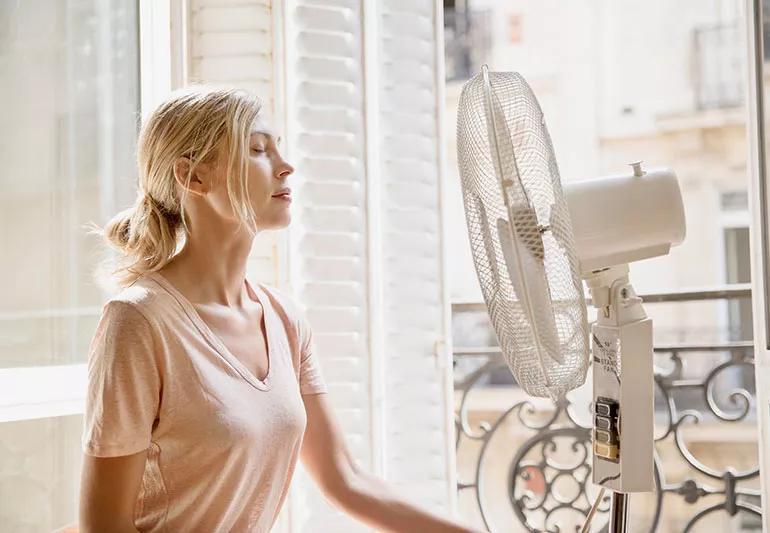How to cope with changing air quality, weather factors

Air quality and changing weather can sometimes wreak havoc on your ability to breathe. In particular, rising heat and humidity can make it more difficult to catch your breath. If you have a chronic lung condition, such as asthma or COPD, you may struggle even more with changing weather conditions.
Advertisement
Cleveland Clinic is a non-profit academic medical center. Advertising on our site helps support our mission. We do not endorse non-Cleveland Clinic products or services. Policy
“People who have lung conditions have their own circumstances and triggers that make them feel better or worse,” says pulmonary medicine specialist Sumita Khatri, MD.
“For example, some people are more affected in the winter due to the cold temperatures that dry the air passages. Others are more affected in hot, humid weather, due to the heaviness of moisture in the air. And some are more affected when there are rapid changes in temperature and barometric pressure, which can make it difficult to readily adjust,” she says.
Although it’s true you can’t change the weather, you can take steps to adapt.
“Taking measures to keep temperature fluctuations as minimal as possible can help,” says Dr. Khatri.
“For instance, if you’re going from hot weather into air conditioning, put on a sweater,” she says. ”When going from heated buildings into cold weather, dress warmly and cover your nose and mouth. The cover will help warm and humidify the air as you breathe in.”
In addition to temperature changes, there are other environmental triggers that can make it more difficult to breathe.
If you smoke, take steps to quit. If not, do your best to avoid secondhand smoke and other potential irritants, including:
Advertisement
If you have a chronic lung condition, your doctor can prescribe medications to help you manage weather-related breathing difficulties. Medications commonly prescribed for chronic lung disease include:
“In patients with both asthma and COPD, using medications or inhalers regularly that doctors prescribe to control inflammation will render the airways less sensitive to temperature fluctuations,” Dr. Khatri says. “The better you control your disease and inflammation, the more resilient your lungs will be.”
Once you’ve learned to adjust to changing air quality and avoid irritants, there are things you can do every day to help you breathe easier:
Even though it may seem normal to have more difficulty breathing when weather conditions are extreme, there are times when you should seek medical help.
“In most cases, shortness of breath is not normal,” says Dr. Khatri.
“Any new shortness of breath should be immediately evaluated, as should any shortness of breath that can’t be explained by the cold or flu or by just being ‘out of shape’,” she says. “And if at any point you notice you’re having breathing difficulty that’s interfering with your normal activity, you need to seek medical care to have your symptoms further evaluated.”
Advertisement

Sign up for our Health Essentials emails for expert guidance on nutrition, fitness, sleep, skin care and more.
Learn more about our editorial process.
Advertisement

Changing how you breathe, gargling water and distracting yourself are all common ways to stop your diaphragm from spasming

Simple at-home solutions, like doing pursed lip breathing and drinking a warm beverage, can often bring immediate relief

Mouth taping may seem promising, but it can actually cause more harm than good, especially if you snore or have sleep apnea

When something like food or drink goes down your windpipe rather than your esophagus, it can cause coughing and sometimes choking

If you’re feeling short of breath, sleep can be tough — propping yourself up or sleeping on your side may help

Getting vaccinated in October can help protect you against severe illness between November and March

Breathing through your nose is far better for you, but depending on your anatomy, that may not always be possible

Cut up foods into small pieces and make sure you sit down and focus during meals

Even small moments of time outdoors can help reduce stress, boost mood and restore a sense of calm

A correct prescription helps your eyes see clearly — but as natural changes occur, you may need stronger or different eyeglasses

Both are medical emergencies, but they are very distinct events with different causes